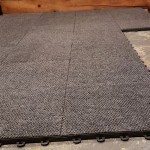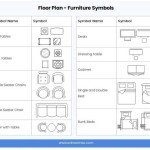What Is The Vinyl Flooring
Vinyl flooring is a popular choice for both residential and commercial applications. It is durable, easy to clean, and available in a wide variety of styles and colors. Vinyl flooring is made from polyvinyl chloride (PVC), which is a synthetic material that is resistant to wear and tear.
There are two main types of vinyl flooring: sheet vinyl and vinyl tiles. Sheet vinyl is a single piece of material that is installed in one continuous piece. Vinyl tiles are individual tiles that are installed one at a time. Vinyl tiles are available in a wider variety of styles and colors than sheet vinyl, but they are also more expensive.
Vinyl flooring is installed over a subfloor, which is typically made of plywood or concrete. The subfloor must be level and smooth in order for the vinyl flooring to be installed properly. Vinyl flooring is installed using adhesive or glue, which is applied to the subfloor before the flooring is installed.
Once the vinyl flooring is installed, it must be sealed. The sealant helps to protect the flooring from stains and wear and tear. Vinyl flooring is easy to clean, and it can be cleaned with a damp mop or a vacuum cleaner.
Vinyl flooring is a durable and affordable option for both residential and commercial applications. It is easy to clean and maintain, and it is available in a wide variety of styles and colors. Vinyl flooring is a great choice for anyone who is looking for a durable and stylish flooring option.
Advantages of Vinyl Flooring
There are many advantages to choosing vinyl flooring for your home or business. Some of the benefits of vinyl flooring include:
- Durable: Vinyl flooring is resistant to wear and tear, making it a great choice for high-traffic areas.
- Easy to clean: Vinyl flooring is easy to clean and maintain. It can be cleaned with a damp mop or a vacuum cleaner.
- Affordable: Vinyl flooring is an affordable option for both residential and commercial applications.
- Versatile: Vinyl flooring is available in a wide variety of styles and colors, making it a great choice for any décor.
- Waterproof: Vinyl flooring is waterproof, making it a great choice for areas that are prone to moisture, such as kitchens and bathrooms.
Disadvantages of Vinyl Flooring
There are a few disadvantages to choosing vinyl flooring for your home or business. Some of the potential drawbacks of vinyl flooring include:
- Can be difficult to install: Vinyl flooring can be difficult to install, especially if you are not experienced in DIY projects.
- May not be as durable as other types of flooring: Vinyl flooring is not as durable as some other types of flooring, such as hardwood or tile.
- Can be scratched or damaged by sharp objects: Vinyl flooring can be scratched or damaged by sharp objects, such as pet claws or furniture legs.
- May contain harmful chemicals: Some vinyl flooring products contain harmful chemicals, such as phthalates. These chemicals can be harmful to your health, especially if you are exposed to them for long periods of time.
Is Vinyl Flooring Right for You?
Vinyl flooring is a great choice for many different types of applications. It is durable, easy to clean, and affordable. However, it is important to be aware of the potential drawbacks of vinyl flooring before you make a decision. If you are looking for a durable and affordable flooring option, vinyl flooring is a great choice.
Everything You Need To Know About Vinyl Flooring Tarkett

How To Choose The Right Vinyl Flooring Mr Handyman

Pros Cons Of Vinyl Flooring Eric Wright Carpets

Types Of Vinyl Flooring The Home

Types Of Vinyl Flooring The Home

How To Choose The Right Vinyl Flooring Mr Handyman

Vinyl Vs Laminate Flooring Pros Cons And Differences Forbes Home

Laminate Vs Vinyl Flooring Pros And Cons How To Choose Lx Hausys
Different Types Of Vinyl Flooring Tarkett

Vinyl Flooring 101 What Is And Should You Get It Alpod Eu








